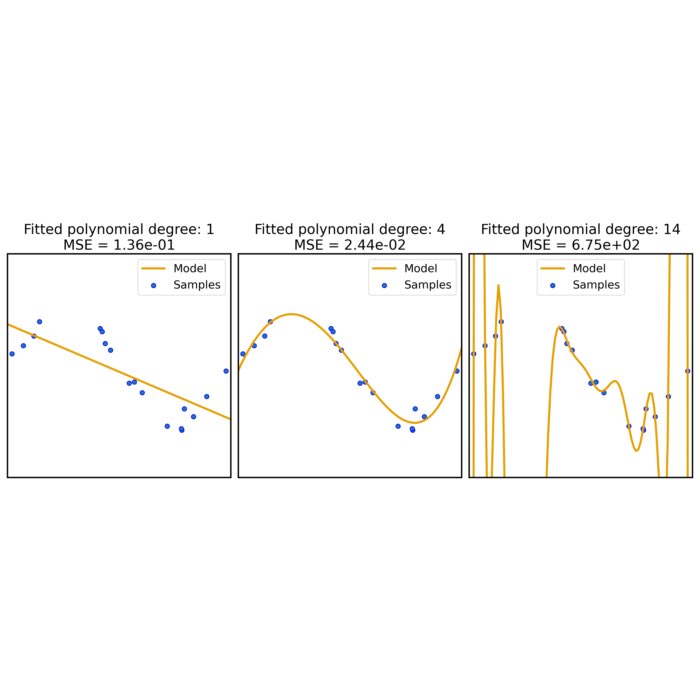Zen and natural sciences
In my previous blog posts about The Zen of programming and The Zen of Python, I shared some thoughts about the intriguing connections between Zen and programming. Here, I’d now like to broaden the scope and explore the intersections between Zen and the natural sciences more generally.
Zen Buddhism, with its focus on ‘suchness’ — the nature of things as they are — and natural sciences, both strive to comprehend reality in its raw, unadulterated form. Both may initially appear like paths diverging in the intellectual wilderness, one wrapped in spiritual tranquility and the other grounded in empirical inquiry. However, upon closer inspection, they reveal a shared heartbeat — the relentless pursuit of truth and an unwavering appreciation for the ‘suchness’ of reality, the essence of things as they are.
 The hanzi/kanji 三 (Chinese (Pinyin)/Japanese: san) translates to “three”, resonating with the empirical, numeric basis of natural sciences. Coupled with 世 (C/J: shi/ze), signifying “world”, it forms the term 三世 (sanshi/sanze), or “the three worlds”. In Buddhism, this concept can be seen as representing the realms of time: past, present, and future. This idea, prominently featured in the Heart Sutra — one of the most prominent and important sutras in Zen Buddhism — symbolizes the world as a whole, encompassing both time and space. As such, it aptly reflects the core pursuits of both natural sciences and Zen, which strive to understand and appreciate the nature as it is. Own drawing.
The hanzi/kanji 三 (Chinese (Pinyin)/Japanese: san) translates to “three”, resonating with the empirical, numeric basis of natural sciences. Coupled with 世 (C/J: shi/ze), signifying “world”, it forms the term 三世 (sanshi/sanze), or “the three worlds”. In Buddhism, this concept can be seen as representing the realms of time: past, present, and future. This idea, prominently featured in the Heart Sutra — one of the most prominent and important sutras in Zen Buddhism — symbolizes the world as a whole, encompassing both time and space. As such, it aptly reflects the core pursuits of both natural sciences and Zen, which strive to understand and appreciate the nature as it is. Own drawing.
Harmony of ‘suchness’ and the laws of nature
The Zen concept of ‘suchness’ or ‘tathatā’ refers to experiencing things in their pure, unmediated existence. It is about perceiving reality as it is, unobscured by our interpretations, judgments, or concepts. Similarly, the objective of natural sciences — be it physics, mathematics, biology, chemistry, or computer science — is to unravel the truths of the universe without any subjective bias. They attempt to decode the laws that govern every natural process, from the microcosmic scale of particles to the grand theater of the universe.
1. Embracing the impermanence and interconnectedness
One of the core tenets of Zen Buddhism is the recognition of impermanence and interconnectedness. Everything in the universe is in a constant state of flux, and nothing exists in isolation. This perspective finds echoes in modern physics. Quantum mechanics, for instance, tells us that particles can exist in multiple states at once and only take on defined properties when they are observed. Similarly, the theory of relativity upended the absolute nature of space and time, proposing a universe where everything is interconnected within a four-dimensional space-time continuum.
2. Zen mindfulness and observational sciences
Mindfulness, a key practice in Zen, involves a focused awareness of the present moment. This practice’s aim is to perceive reality in its truest form, devoid of our preconceived notions and biases. It resonates with the practice of observational sciences, where careful, unbiased observation forms the foundation of discoveries. The keen eye of a biologist under a microscope, the precise measurements of a physicist experimenting in a lab, or the detailed observations of an astronomer studying celestial bodies all require a form of mindfulness.
3. The elegance of simplicity
In Zen, simplicity is prized above all else. Zen gardens, art, poetry, all embody the principle of profound beauty in simplicity. This mirrors the appreciation of simplicity and elegance in scientific theories and mathematical proofs. Physicists and mathematicians often speak of the elegance of equations or theories, and the simplest explanation (provided it adequately explains the phenomena) is usually the preferred one, as per Occam’s Razor.
4. The embrace of mystery
Despite its focus on unraveling the universe’s laws, science also embraces the mystery of the unknown. The more we learn, the more we realize how much we don’t know. This perspective aligns with the Zen understanding of the ‘beginner’s mind’ (初心, shoshin) — an attitude of openness, eagerness, and lack of preconceptions. This concept parallels the scientific method, which thrives on questioning, probing, and acknowledging the limits of our understanding.
Conclusion
I think, Zen and natural sciences are not merely parallel disciplines or complementary approaches to reality. Instead, they are manifestations of the same underlying quest – the pursuit of ‘suchness’, the exploration of reality as it is. Zen is natural sciences, and natural sciences is Zen; both are woven from the same indivisible fabric.
Whether we wear the robe of a Zen practitioner or don the lab coat of a scientist, our goal remains the same – to navigate the vast seas of existence, broadening our understanding and growing in wisdom. The terminologies may vary, the methodologies may differ, but the spirit of inquiry, the thrill of discovery, and the profound reverence for the laws that govern our universe are a shared language.
Just as the moon’s reflection shimmers identically in separate ponds, the principles of Zen and natural sciences mirror each other in their pursuit of truth. They remind us that beneath the diversity of disciplines and approaches, there lies a unified endeavor – a dialogue with the universe, an exploration of ‘suchness’, and a ceaseless journey towards understanding our reality’s profound and beautiful complexity.








comments